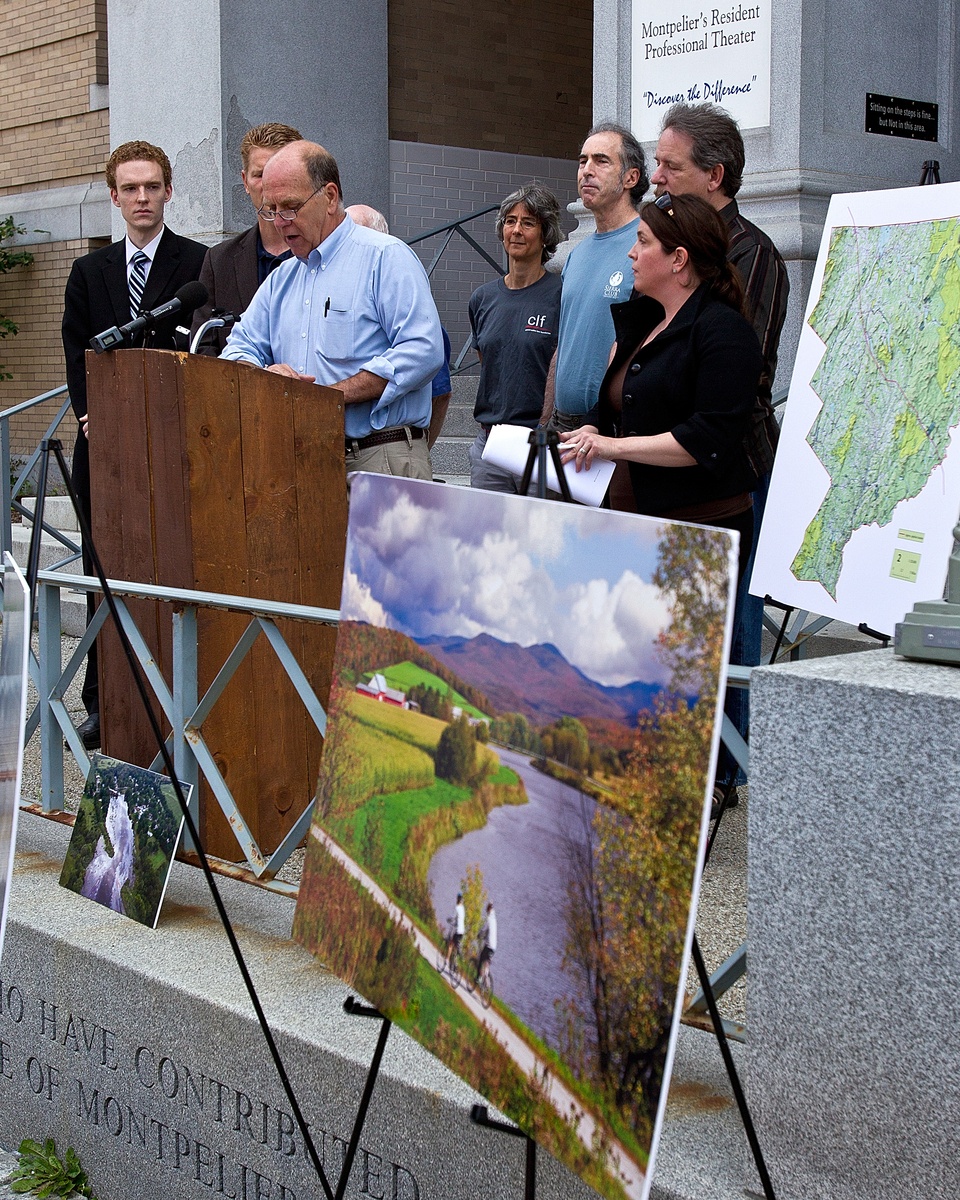We have much more to do and your continued support is needed now more than ever.
New Englanders Take a Stand Against Trailbreaker Pipeline and Dirty Tar Sands Oil

Enbridge Energy’s environmental record is far from perfect—Enbridge is the same pipeline company that leaked approximately 1,000,000 gallons of oil into the Kalamazoo River near Marshall, Michigan in 2010.
“This really ancient pipeline has already spilled, including a spill 35 years ago that fouled Lake Memphemagog,” said Curtis Fisher of National Wildlife Federation. “The pipeline cuts across the Missisquoi, Black, Moose, and Connecticut Rivers, which all are critical wildlife habitats and attract a large number of tourists. Vermont’s Northeast Kingdom is known for being the state’s most pristine area. Vermonters do not want to risk our beloved natural resources to help dirty oil companies make billions and dramatically increase climate change.”
A broad coalition of organizations are defying plans from the Canadian oil pipeline company Enbridge Energy to build their “Trailbreaker” pipeline. These groups are stressing that the pipeline plan is unsafe and that a tar sands oil spill would harm Vermont’s waterways, wildlife and tourism economy.
“Vermont is pursuing a clean energy future in large part because Vermonters know that we depend on cold weather industries like skiing, and sugaring,” said Sandra Levine of Conservation Law Foundation. “Tar sands are a carbon bomb that will catapult us past several dangerous climate tipping points. It has no part in Vermont’s clean energy future.”
Tar Sands Too Risky
The proposed pipeline reversal scheme commonly referred to as “Trailbreaker” would reverse the flow of oil through an existing pipeline and would bring tar sands oil through Ontario, Quebec, Vermont, New Hampshire, and Maine. A new NRDC report explains that unlike the conventional crude oil that currently flows through the pipeline, tar sands is far more corrosive, is more likely to spill, and much harder to clean up when it does spill.
“This pipeline plan puts Vermont’s rivers, lakes and streams in jeopardy and provides no benefits. The company behind it is responsible for the largest tar sands oil spill in U.S. history, which they still haven’t cleaned up,” said Johanna Miller of Vermont Natural Resources Council. “Oil giants don’t call the shots in here in Vermont and they can’t be allowed to put our state’s natural treasures in jeopardy.”
The tar sands industry has been in a desperate search for a port of export since the Keystone XL and Northern Gateway projects have become mired in controversy. The growing expansion of tar sands pipelines eastward raises concerns about the climate implications of a tar sands expansion to Central Canada and the U.S. Northeast. The U.S. Congressional Research Service recently released a report confirming tar sands as the most carbon-heavy oil on the planet (PDF), representing a significant increase in greenhouse gases from typical petroleums.
“Tar sands oil is like hot liquid sandpaper that corrodes pipelines, creating a greater risk of devastating oil spills along the route,” said Danielle Droitsch, NRDC Senior Attorney. “We cannot afford to blindly accept the climate and environmental dangers that come packed with ever-increasing amounts of tar sands being shoved south of the border. Trailbreaker isn’t alone—it is part of a stealth invasion of the U.S. from Canada’s dirty oil—it puts Central Canada and the Northeast squarely on the front lines.”
![]() Click here to help protect Northeastern wildlife from dirty tar sands oil.
Click here to help protect Northeastern wildlife from dirty tar sands oil.





















